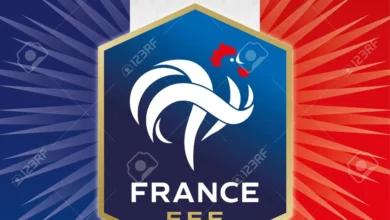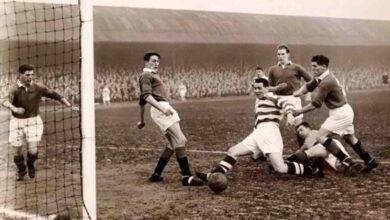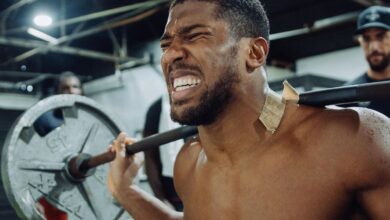

Are you interested in working in the sports world, but not necessarily as an athlete? If so, then you’re in luck! There are plenty of jobs in the sports world for nonathletes. From marketing and media relations to event planning and sports nutrition. There are many ways to work in the sports world without being an athlete. Today we’ll cover 10 amazing jobs in the sports world for nonathletes. Keep reading to learn more!
1) Event management: Event management can be a great job for non-athletes in the sports world. While professional athletes may have a direct impact on the field or court. There are a variety of roles within sports event management that require different skills and expertise.
Event managers in the sports world are responsible for planning, organizing, and executing events such as tournaments, games, and fan experiences. This can involve coordinating with sponsors, vendors, and media outlets, managing logistics and operations. Also overseeing the overall experience for fans and participants.
Some specific roles within sports event management include:
-
Event Coordinator: responsible for managing the logistics of the event, such as securing venues, scheduling activities, and coordinating with vendors and sponsors.
-
Marketing Manager: responsible for developing and implementing marketing campaigns to promote the event, including advertising, social media, and other promotional efforts.
- Operations Manager: responsible for overseeing the day-to-day operations of the event, such as managing staff and volunteers, ensuring safety and security, and handling any issues that arise.
- Sponsorship Manager: responsible for securing and managing sponsorships for the event, including negotiating contracts, developing partnerships, and ensuring sponsor obligations are met.
-
Fan Experience Manager: responsible for creating and managing fan experiences, such as pre-game activities, halftime shows, and post-game events.
Overall, event management in the sports world can be a rewarding and challenging career path for those who have a passion for sports and event planning. While it may not involve playing on the field, it offers the opportunity to contribute to the overall experience of fans and participants in the sports world.
2) Coaching: Coaching is not just limited to working with athletes in the traditional sense. In fact, there are many coaching opportunities in the sports world for non-athletes. Here are a few examples:
-
Fitness Coaching: Fitness coaching involves working with clients to help them reach their fitness goals. This can include things like developing personalized workout plans, providing nutritional guidance, and tracking progress over time. Fitness coaches can work with clients in a variety of settings, including gyms, health clubs, and even online.
-
Strength and Conditioning Coaching: Strength and conditioning coaches work with athletes to help them develop strength, endurance, and agility. These coaches often work with teams or individual athletes to create customized training programs that are designed to improve performance and reduce the risk of injury.
-
Sports Psychology Coaching: Sports psychology coaches work with athletes to help them develop mental toughness, focus, and confidence. These coaches can help athletes overcome mental barriers that may be holding them back and provide strategies for managing stress and anxiety.
- Sports Nutrition Coaching: Sports nutrition coaches work with athletes to help them optimize their diets for peak performance. These coaches can provide guidance on proper nutrient intake, hydration, and fueling strategies for pre- and post-workout recovery.
- Sports Marketing and Management Coaching: Sports marketing and management coaches work with athletes and sports organizations to help them develop and implement marketing and management strategies. This can include things like brand development, sponsorships, event planning, and more.
These are just a few examples of coaching opportunities in the sports world for non-athletes. If you have a passion for sports and a desire to help others achieve their goals, there are many different paths you can take in the field of sports coaching.
3) Athletic training: Yes, athletic training can be a job for non-athletes in the sports world. Athletic trainers are healthcare professionals who work with athletes and active individuals to prevent, diagnose, and treat injuries and illnesses related to physical activity. While athletic trainers often work with sports teams, they may also work in other settings such as fitness centers, hospitals, clinics, or schools.
Athletic trainers typically have a bachelor’s or master’s degree in athletic training, and are certified by the Board of Certification (BOC) for Athletic Trainers. Some states also require athletic trainers to be licensed.
As an athletic trainer, you would work with athletes and other active individuals to develop and implement injury prevention programs, evaluate and treat injuries, and provide rehabilitation services. You may also work with coaches and other healthcare professionals to ensure the safety and health of athletes.
While athletic training is a physically demanding job, it can be a rewarding career for those who are passionate about sports and helping others. If you’re interested in becoming an athletic trainer, you should consider pursuing a degree in athletic training and obtaining certification from the BOC.
4) Physical therapy: Physical therapy can be a great career option for individuals who are passionate about sports but may not necessarily want to be athletes themselves. Physical therapists play a critical role in the sports world by helping athletes recover from injuries, prevent future injuries, and improve their overall performance.
In addition to working with professional athletes, physical therapists also work with recreational athletes, high school and college athletes, and individuals who simply enjoy sports and physical activity. They may work in a variety of settings, including sports medicine clinics, hospitals, rehabilitation centers, and fitness facilities.
As a physical therapist, you will have the opportunity to work closely with athletes and help them achieve their goals. You will also have the satisfaction of knowing that your work is helping to improve the health and well-being of your patients.
To become a physical therapist, you will need to earn a Doctor of Physical Therapy (DPT) degree from an accredited program. You will also need to pass the National Physical Therapy Exam and obtain a state license to practice.
Physical therapy can be a rewarding career for individuals who are passionate about sports and helping others achieve their full potential.
5) Sport psychology: There are many opportunities for individuals with a background in sport psychology to work in the sports world without being athletes themselves. Here are some potential career paths:
-
Sport Psychology Consultant: A sport psychology consultant provides mental skills training to athletes and coaches to improve their performance. They may work with teams, individual athletes, or coaches to help them develop skills such as goal-setting, visualization, relaxation techniques, and self-talk.
- Sports Psychologist: A sports psychologist is a licensed psychologist who specializes in working with athletes and teams to address mental health concerns and improve performance. They may provide counseling, psychotherapy, or other interventions to help athletes overcome anxiety, depression, or other mental health challenges.
3. Sports Journalist: Sports journalists can use their understanding of sport psychology to write articles and cover events in a more informed and insightful way. They can analyze the psychological factors that contribute to athletes’ success or failure and help readers understand the importance of mental skills in sports performance.
Sport psychology offers a variety of career opportunities for individuals who are passionate about sports and want to make a difference in the lives of athletes and coaches.
6) Sport nutrition: There are many job opportunities in sports nutrition for non-athletes in the sports world. Sports nutritionists work with athletes to help them optimize their nutrition and hydration, improve their performance, and prevent injury.
Some potential job roles in sports nutrition include:
- Sports Nutritionist: A sports nutritionist works with athletes to create individualized nutrition plans that meet their specific needs and goals. They might work with athletes in a variety of sports, from endurance athletes to football players, and help them optimize their performance through proper nutrition.
- Sports Dietitian: A sports dietitian is a registered dietitian who specializes in working with athletes. They help athletes to develop healthy eating habits that improve their overall health and performance.
- Sports Nutrition Consultant: A sports nutrition consultant provides advice and guidance to athletes, coaches, and teams on how to optimize their nutrition and performance. They might work on a contract basis with individual athletes or teams, providing education and support as needed.
- Sports Nutrition Educator: A sports nutrition educator develops and delivers educational programs on sports nutrition for athletes, coaches, and other sports professionals. They might work for a sports organization, university, or private company.
- Sports Nutrition Researcher: A sports nutrition researcher studies the effects of nutrition on athletic performance and health. They might work for a university, research institute, or sports organization.
In summary, there are many job opportunities in sports nutrition for non-athletes in the sports world. These jobs require specialized knowledge and training in nutrition. and sports science and offer the opportunity to work with athletes and teams to help them optimize their performance and achieve their goals.
7) Sport marketing: Sport marketing is a growing industry that offers various job opportunities for non-athletes in the sports world. Sport marketing involves promoting sports teams, events, products, and services through various marketing strategies and tactics.
Some of the job opportunities in sport marketing include:
- Brand Manager: A brand manager is responsible for developing and implementing marketing strategies to build and maintain a brand’s image. In sports, a brand manager may work for a team or an athlete. in order to help promote their brand.
- Marketing Coordinator: A marketing coordinator assists with the planning and execution of marketing campaigns. They may help with social media, email marketing, advertising, and other promotional efforts.
- Sponsorship Manager: A sponsorship manager is responsible for securing sponsorship deals for sports teams, events, or athletes. They may work for a sports team or a marketing agency.
-
Digital Marketing Specialist: A digital marketing specialist creates and implements online marketing campaigns. This include social media, email marketing, and website optimization.
- Event Coordinator: An event coordinator plans and executes sporting events, such as tournaments, races, and charity events. They may work for a sports team, a marketing agency, or an event management company.
- Public Relations Specialist: A public relations specialist manages a team or individual’s public image through media relations, press releases. And other communication efforts.
- Ticket Sales Representative: A ticket sales representative sells tickets for sports events, either over the phone or in person. They may also help with marketing campaigns to drive ticket sales.
Overall, sport marketing offers a diverse range of job opportunities for non-athletes in the sports world. Whether you are interested in brand management, digital marketing, or event planning, there are many exciting career paths to explore.
8) Sport journalism
Sports journalism can be a great career path for non-athletes who are passionate about sports and storytelling. Many successful sports journalists have never played professional sports themselves. Yet they have built their careers by becoming experts in their field and developing strong communication skills.
As a sports journalist, you can cover a wide range of topics. Some of which include game analysis, player profiles, team news, and industry trends. You can work for traditional media outlets like newspapers, magazines, and television networks. You can also work for digital media companies or start your own sports blog or podcast.
To become a successful sports journalist, you will need to have a strong understanding of the sports industry. As well as an ability to connect with players, coaches, and fans. You will also need to be able to write engaging stories and develop a unique voice and perspective. That would set you apart from other sports journalists.
While it can be a competitive field. Sports journalism can be an exciting career for non-athletes who are passionate about sports and have a talent for writing.
9) Sport law
Sports law is an exciting and challenging field that encompasses a wide range of legal issues in the sports world. This include contracts, intellectual property, anti-doping regulations, labor and employment, and torts.
While many sports lawyers have a background in athletics or sports management. It is possible to pursue a career in sports law as a non-athlete or non-sports professional. Here are some ways to get started:
-
Obtain a law degree: The first step to becoming a sports lawyer is to obtain a law degree. This will give you the legal knowledge and skills you need to work in the field.
-
Gain experience: Many law schools offer sports law courses or clinics, which provide students with practical experience in the field. You can also gain experience by working as a law clerk or intern at a sports agency or law firm.
-
Build a network: Networking is essential in any field, and sports law is no exception. Attend sports law conferences, join professional organizations like the Sports Lawyers Association. Connect with sports industry professionals on social media.
- Specialize: Consider specializing in a particular area of sports law, such as athlete representation, contract negotiation, or intellectual property.
- Stay up-to-date: Sports law is a rapidly evolving field. It is important to stay up-to-date on the latest legal developments and trends. Subscribe to legal publications, attend continuing education courses, and follow sports law experts on social media.
Having a background in athletics or sports management can be an advantage. It is not a requirement to pursue a career in sports law. With the right education, experience, and network, non-athletes can succeed in this exciting and challenging field
10) Sport sociology
Sports sociology is a fascinating field of study that examines the relationship between sports and society. As a job for non-athletes in the sports world, it can offer a range of interesting opportunities. Here are a few potential career paths for someone interested in sports sociology:
- Sports journalist: A sports journalist with a background in sociology can provide a unique perspective on how sports reflect and shape societal attitudes and values. They can write in-depth articles, report on sports events, and conduct interviews with athletes and coaches.
- Sports marketer: A sports marketer with a background in sociology can use their knowledge to develop campaigns that resonate with different demographic groups. They can also help sports organizations navigate complex social issues such as diversity and inclusion.
-
Sports researcher: A sports researcher with a background in sociology can conduct studies on topics such as the impact of sports on mental health. The role of sports in building community, and the intersection of race and sports.
- Sports policy analyst: A sports policy analyst with a background in sociology can work for government agencies, non-profit organizations, or sports leagues to develop policies that promote equity, access, and social justice in sports.
- Sports educator: A sports educator with a background in sociology can teach courses that explore the relationship between sports and society. They can also develop curricula that incorporate sports as a way to teach broader social issues.
There are many interesting and rewarding career paths in sports sociology for non-athletes in the sports world.
Conclusion
Having seen the numerous job opportunities available for non-athletes in the sporting world. These career paths offer a wide range of exciting, rewarding and meaningful jobs in sports. From event management to coaching, athletic training to physical therapy, sport psychology to sport nutrition. Also sport marketing to sport journalism, there is something for everyone. With the right qualifications, experience and dedication. You can find the perfect job in the world of sports to suit your interests, skills and passions.





